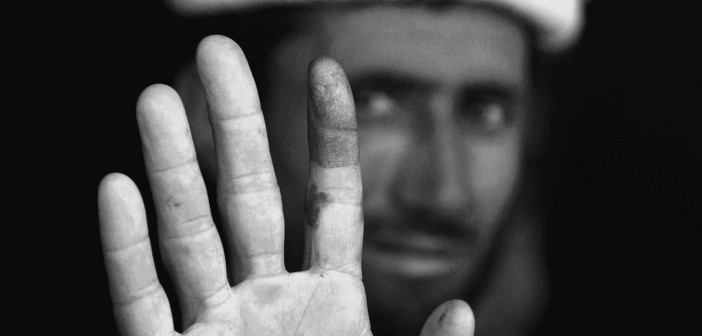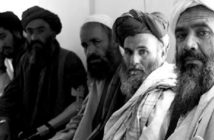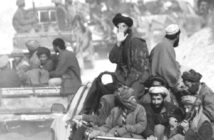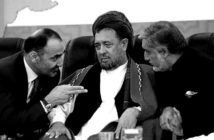Despite the constant threats of the Taliban insurgents to disrupt the 2014 presidential election, around seven million Afghans rushed to polling stations to cast their votes on April 5th for the presidential election. According to the election law of Afghanistan, a presidential candidate must obtain 50 percent +1 vote to win the presidential mandate. But no candidate won enough votes to secure outright victory in the first round, so the Afghan election commission has announced the electoral showdown for June 14th between the two leading candidates, Abdullah Abdullah and Ashraf Ghani…
This is the first time ever that Afghans are practising the transition of power through a democratic process, the turnout being double of what it was in the 2009 presidential election. The major events of this year highlight the importance of this election.
2014…
For most people in the world, the beginning of 2014 was just another new year. People around the world had a countdown in the last seconds of 2013 and then celebrated in joy and fun as the New Year began.
In Afghanistan, though, the beginning of 2014 was met with concerns and deep worries about the future.
The United States of America and NATO troops are going to complete their withdrawal from Afghanistan by the end of 2014, and the Afghans fear that the situation might get worse or there might be more bloodshed in the country, perhaps even yet another civil war.
As soon as US President Barack Obama and NATO commanders in Afghanistan announced the timetable for the withdrawal two years ago, the first sector in the country to be impacted by the announcement wasreal estate. Prices for land and houses dramatically decreased and renting a house, which was difficult in Kabul city until 2011, became easier.
Now signs indicating vacancies, “houses for rent” or “space for rent”can be seen everywhere…
Nonetheless rapid developments have been observed over the last 12 years following the massive destruction, which happened during the civil war in the 1990s.
The capital, Kabul, and a few major cities around the country invested in impressive infrastructure providing for education and health sector and thousands of kilometres of roads. But the Afghans also witnessed the weakness of president Hamid Karzai’s government, that they were unable to fully stabilize the country, bring peace with the help of the US-led coalition forces, address the broad spread of poppy cultivation and the enormous corruption in almost every level of administration in the country.
Corruption is everywhere, starting from very small governmental offices in rural Afghanistan to the courts and ministries in the capital.
It is in this kind of complicated situation, in which we see increased violence by the Taliban insurgents and mistrust of Afghan security forces – especially the Afghan National Police (ANP) and the Afghan Local Police (ALP). The country’s economy depends on foreign money and investment and many people fear that things might get much worse than they are now following the withdrawal of the foreign forces from Afghanistan.
Clear examples of this fear have been seen amongst the Afghans. Businessmen are less interested in investing in the country, many are considering illegally emigrating, and many government officials and civilians are looking for an opportunity to flee the country…
Civilians are thinking of buying guns for their own safety!
And there are also reports that some warlords and Jihadi parties are trying to get more weapons to get ready for the time after 2014…
So in this crucial period of time, the only option is a peaceful end to the on-going conflict in this country.
Muslim countries, within international efforts, especially Saudi Arabia and other regional countries, can play a bigger role on how to convince all sides involved in the war to agree to negotiations.
In this regard, the Hezb-e-Islami party has already given its green light for talks and it would take a very small, but honest effort, to bring Gulbudin Hekmatyar, the leader of Hezb-e-Islami into the fold. But to bring the Taliban to the negotiation table a much more transparent, trustworthy and logical process is needed and more necessarily Pakistan needs to join the game and take up a big and honest role, given that Afghan officials claim that the insurgents are hiding, getting trained and obtain funding in Pakistan.
On the national level, Afghans are enthusiastically observing the election process and it is predicted that many more Afghans will vote during the showdown to choose a president who can put an end to the on-going war in the country.





